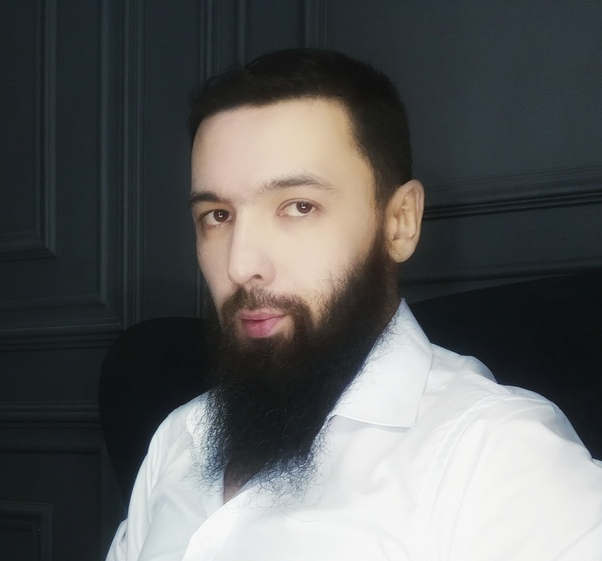
In an age defined by globalization and digital communication, religious practices are evolving alongside technology. One such transformation is the growing acceptance and effectiveness of remote ruqyah—Qur’anic healing performed through voice calls or virtual platforms. While some may question the legitimacy or efficacy of ruqyah performed across great distances, Islamic tradition and contemporary scholarship offer clarity: the power of Allah’s words knows no physical limits.
This article explores why Qur’anic healing is not constrained by geography and how remote ruqyah not only aligns with Islamic principles but also expands access to spiritual care across the globe.
RUQYAH: A SPIRITUAL PRACTICE ROOTED IN DIVINE WORDS
Ruqyah refers to the recitation of specific Qur’anic verses or prophetic supplications for the purpose of healing. The Messenger of Allah (peace be upon him) used ruqyah to treat both spiritual and physical ailments. The core of ruqyah lies in the divine power of Allah’s words, the sincerity of the reciter, and the faith of the one seeking healing.
It is important to remember that the Prophet (peace be upon him) emphasized the spiritual content and intention behind ruqyah rather than its form. Nowhere in the Qur’an or Sunnah is there a requirement that ruqyah must be performed in physical proximity to be effective.
THE QURAN IS NOT BOUND BY TIME OR SPACE
One of the most profound aspects of the Qur’an is its eternal nature. The verses of the Qur’an transcend both time and space. When recited with sincerity and faith, their impact is not lessened by the medium through which they are delivered.
Allah says in the Qur’an:
“We send down of the Qur’an that which is healing and mercy for the believers.” (Surah Al-Isra, 17:82)
This promise of healing does not include limitations. Whether the Qur’an is recited in person, through a speaker, a recording, or a live phone call, the healing is granted by Allah’s will.
VOICE: A VESSEL OF HEALING
Islam gives great significance to the spoken word. The Qur’an was initially transmitted orally, memorized by companions, and passed down from generation to generation by voice. In the same way, ruqyah is traditionally performed by verbal recitation, with the healing power carried through the vibrations of the voice.
In today’s world, a voice can travel through satellites, data streams, and fiber optic cables. But its essence remains the same. A believer listening to ruqyah over the phone is still hearing the same words of Allah, carried by the same reciter’s voice, with the same spiritual intention.
It’s not the medium that heals, but the divine words and the sincerity of faith.
FATWAS AND SCHOLARLY ENDORSEMENTS
Modern scholars have addressed the question of ruqyah over long distances, and the verdict is clear. Prominent scholars such as Shaykh Ibn Baz and Shaykh Ibn Uthaymeen have affirmed that ruqyah via telephone or recorded media is permissible.
They emphasized that if the ruqyah includes correct verses from the Qur’an and sound supplications, it can be beneficial, regardless of the listener’s location. They argue that there is no specific religious text that mandates physical proximity for ruqyah to be valid.
The core requirement is the soundness of the content and the sincerity of the reciter and the patient—not their physical positions.
REMOVING BARRIERS TO RUQYAH
Many people today live in remote areas or travel frequently, and they may not have easy access to a trustworthy ruqyah practitioner. Remote ruqyah provides a solution to this challenge, especially for:
Muslims in non-Muslim-majority countries
Individuals with mobility issues or chronic illnesses
Those who feel vulnerable discussing sensitive matters in person
People seeking discretion in their spiritual healing
With a simple phone connection, these individuals can receive the same comfort, guidance, and spiritual support as they would in person. Remote ruqyah tears down the barriers of location and enables healing without borders.
THE IMPORTANCE OF PRESENCE OF THE HEART
Whether ruqyah is performed in person or remotely, the spiritual effectiveness of the session depends heavily on the presence of heart. Listening attentively, focusing on the words, avoiding distractions, and making dua during the session are far more crucial than where the listener happens to be.
Imam Al-Ghazali wrote extensively about the importance of inner concentration in worship, teaching that outward form is secondary to inward sincerity. This principle applies beautifully to ruqyah: the recitation may be remote, but if the hearts are connected to Allah, the healing can be deeply transformative.
COMMON MYTHS REGARDING REMOTE RUQYAH
Some believe that remote ruqyah is less powerful than in-person sessions. Others fear that technology interferes with the purity of the spiritual experience. But these views are rooted more in cultural assumptions than in Islamic theology.
The Qur’an and Sunnah emphasize the universality and timelessness of divine words. Just as the Qur’an continues to inspire hearts through written text, audio recitations, and digital platforms, so too can ruqyah reach and affect souls through technological means.
In fact, by offering remote ruqyah, practitioners can reach more people, offer more flexibility, and still maintain the spiritual sanctity of the experience.
CONCLUSION
Remote ruqyah is a continuation of tradition. In a world where Muslims are scattered across continents, the ability to deliver healing and comfort through the Qur’an without the need for travel or in-person contact is a divine blessing.
The power of Qur’anic healing lies not in proximity but in the purity of intention, the clarity of the words, and the mercy of Allah. Technology, far from being an obstacle, becomes a bridge—a way to carry the voice of healing across cities, countries, and oceans.
In embracing remote ruqyah, we affirm a simple but profound truth: when the word of Allah is spoken and heard with sincerity, no border can block its light.

